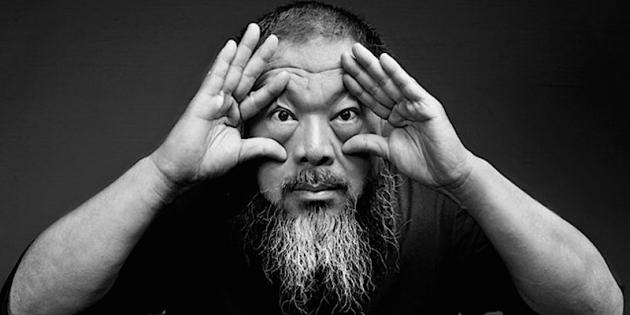The international artist Ai Weiwei along with the folk singer Joan Baez were presented as the joint recipients of Amnesty International’s Ambassador of Conscience Award for 2015 on 21 May, in Berlin. Amnesty’s secretary general Salil Shetty called Ai and Baez “an inspiration to thousands more human rights activists, from across Asia to America and beyond”. “Through his work, Ai Weiwei reminds us that the right of every individual to express their self must be protected — not just for the sake of society, but also for art and humanity,” Shetty said.
Amnesty International’s Ambassador of Conscience Award is the organization’s top honour, recognizing those who have shown exceptional leadership in the fight for human rights, through their life and work. Speakers included singer-songwriter Patti Smith.
“The Ambassador of Conscience Award is a celebration of those unique individuals who have used their talents to inspire many, many others to take injustice personally.
In the 50th year anniversary of Joan Baez’s performance to the Selma to Montgomery civil rights march in Alabama. She performed at the “Stars for Freedom” rally alongside fellow artists including Harry Belafonte (who was awarded the Ambassador of Conscience Award in 2013), Sammy Davis Jr., Peter Paul & Mary and Nina Simone.
Joan Baez has dedicated most of her life to non-violence, and civil and human rights activism. She has participated in marches for civil rights alongside Dr. Martin Luther King, Jr.; advocated against the death penalty; campaigned for peace and against human rights abuses in Vietnam; defended the rights of California’s migrant farm workers; attended anti-torture rallies; and supported gay and lesbian rights campaigns.
She helped establish local Amnesty International groups in the San Francisco Bay area in the early ‘70s, and went on to perform in support of the organization during the groundbreaking “Conspiracy of Hope” music tour on Amnesty International’s 25th anniversary in 1986.
Ai Weiwei,] so obviously proud of his Chinese heritage, seems acutely aware of the truth that every human endeavor be it religious, financial or political needs its checks and balances. Good intentions are in the end not enough, good criticism is the oxygen of progress. – U2’s The Edge
Ai Weiwei is a world-renowned artist and frequent critic of the Chinese government’s policies. His acclaimed work often explores the limits placed on the right of people in China to express themselves, as well as his personal experience of incarceration. His activities and work frequently deal with sensitive issues that the Chinese government would prefer were not raised.
In 2010, Ai Weiwei was briefly detained and severely beaten by security officials just before he was due to testify for the defence during the trial of Tan Zuoren, an environmental activist who, along with Ai Weiwei, had documented the names of thousands of children who died during the May 2008 Sichuan earthquake.
After persistent harassment from the authorities, Ai Weiwei was detained in 2011 for 81 days without charge. A company he founded was later convicted of tax evasion by the Chinese authorities. Ai Weiwei remains under surveillance and is unable to leave the country.
His recent work includes an exhibit at Alcatraz, California, highlighting the plight of modern day political prisoners.
“Through his work Ai Weiwei reminds us that the right of every individual to express their self must be protected—not just for the sake of society, but also for art and humanity,” said Salil Shetty.
On learning of the announcement, Ai Weiwei said: “I am very privileged to receive this special honour, and shall not fail the encouragement and profound expectation of me with this Award.” Freedom of expression is an essential human condition; it should be valued, respected and protected by all of us. – Ai Weiwei

